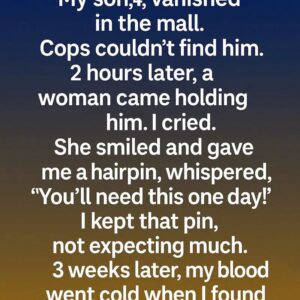I was married to Mike for seven years and truly believed we were partners — not perfect, but honest, aligned, and building a life side by side. When my grandmother passed last spring and left me $15,000, I told him immediately. He held my hand, offered comfort, and assured me we’d use the gift responsibly. I trusted him completely. I thought transparency would deepen our bond, not weaken it.
Three months later, he came home looking shaken. He said he’d crashed his boss’s car and needed $8,000 to pay for the damage privately, or he risked losing his job. In that moment, I didn’t hesitate. Protecting him felt natural — an act of loyalty, not sacrifice. I wired the money and told myself, This is what marriage means. We look out for each other.
But the truth arrived quietly.
A few days later, while using his laptop to search for a recipe, I noticed a file on the desktop: Tickets_Miami.pdf. I clicked without thinking. And the life I believed in ruptured in a single breath.
There were flight details. Hotel bookings. Two travelers.
Not Mike and a colleague.
Not Mike and family.
But Mike and his boss — for a trip during the exact weekend he had claimed the “accident” happened.
The pit in my stomach told me everything before the words were spoken. When I confronted him, he didn’t deny it. The story had been a fabrication from the beginning — created not out of need, but to access the money I had received from someone I loved deeply.
In that moment, something in me shifted. Not in anger, but in clarity. The trust I had lived inside for seven years suddenly felt like thin ice I hadn’t realized I was walking on.
I packed a bag that night. Not because I stopped loving him, but because I could no longer stay in a space where truth had been treated so lightly. A marriage can survive mistakes, flaws, and seasons of struggle — but not deliberate deception.
Months later he reached out with apologies and promises of change. I listened, because compassion matters. But his words could not rebuild what intentional betrayal had fractured. Some doors don’t need to be slammed shut — they close themselves when honesty leaves the room.
What I regret is not the money. Not the generosity.
What I regret is silencing my intuition and calling it loyalty.
Now, I guard my peace with steadier hands.
Because love should never require self-erasure.
Because trust cannot be rebuilt on the same ground where it was broken.
Because a relationship worthy of your heart is one where honesty is a habit, not a strategy.
And most of all:
I no longer mistake openness for vulnerability — or vulnerability for weakness.
I know exactly who I am, what I deserve, and how to protect both.




